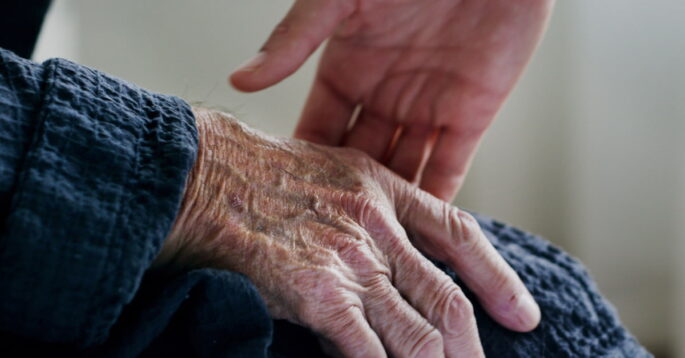While some states may have different age ranges, the Centers for Disease Control and Prevention (CDC) and the World Health Organization (WHO) define elder abuse as the mistreatment of someone over the age of 60.
Abuse can happen in a nursing home or at an older person’s own home by spouses, adult children, other family members, or acquaintances.
There are several types of elder abuse, including:
- Emotional abuse
- Financial abuse
- Neglect
- Physical abuse
- Sexual abuse
As people get older, they may also be at higher risk of experiencing certain types of abuse. For example, older adults in their 70s risk losing more money in cases of financial abuse than those in their 60s or 80s.
Elder and nursing home abuse of all types can be very dangerous — even life-threatening — for victims. Learn how you can take action for a loved one in a free legal case review.
How Elder Abuse Affects People By Age
Each type of abuse can happen at any age, but certain types tend to affect older adults more frequently at specific ages. Learn about which types of elder abuse are most common in each age range below.
Elder Abuse of Seniors Aged 60-69
People aged 60-69 are at a higher risk for several types of abuse compared to those in their 70s.
Adults in their 60s were more likely to disclose verbal or emotional abuse when compared to those aged 70 or older, according to a study cited by the National Center on Elder Abuse (NCEA).
The same study also found seniors in this age group experienced financial and physical abuse at higher rates.
That said, older adults of any age can be victims, especially if they are dealing with significant health issues. Physical and emotional abuse can cause lasting trauma or even life-threatening injuries.
Elder Abuse of Seniors Aged 70-79
While those in their 60s may be more likely to suffer from financial abuse, people aged 70-79 are at risk of losing more money on average.
Elder financial abuse occurs when someone else takes control of any aspect of an older adult’s finances without their permission. This may involve using their credit or debit card, transferring money, making investments, or taking annuities without their knowledge.
People aged 70-79 lose the most money from financial abuse every year — $45,300 on average — according to a report from AARP and the Consumer Financial Protection Bureau (CFPB).
The impact of financial abuse on seniors is significant. It can prevent them from having the financial resources to pay for medical treatments or their living expenses throughout retirement.
Loss of control over their finances and being taken advantage of by others can also have a serious negative effect on an older adult’s mental health.
Elder Abuse of Seniors Aged 80 or Older
Seniors aged 80 or older are more likely to have dementia, a condition affecting memory and behavior that puts people at greater risk of many forms of abuse.
According to the Alzheimer’s Society, 1 in 6 people aged 80 or higher has dementia. The National Council on Aging (NCOA) reports that almost 50% of people with dementia or similar mental impairments suffer from abuse.
Dementia patients have a higher risk of elder or nursing home abuse because the condition may make it harder for them to spot warning signs or report them. Women with dementia in this age group may also be at greater risk of sexual abuse.
If you suspect someone with dementia is at risk of elder abuse or has been a victim, contact law enforcement and your local Adult Protective Services (APS).
Getting Help After Elder Abuse
No matter what age a person is abused, it is never acceptable. Elder abuse at any age can cause long-term trauma, injuries, illnesses, or even death, but families may have options to hold abusers accountable.
It is important to report abuse to law enforcement, APS, or a long-term care ombudsman. Reporting elder abuse can help to stop it before it causes serious or long-term harm.
If your loved one has suffered abuse, our team can also help you connect with legal resources to get the justice your family deserves. Get a free case review to see if you may be eligible for these resources and compensation.

 Free Case Review
Free Case Review